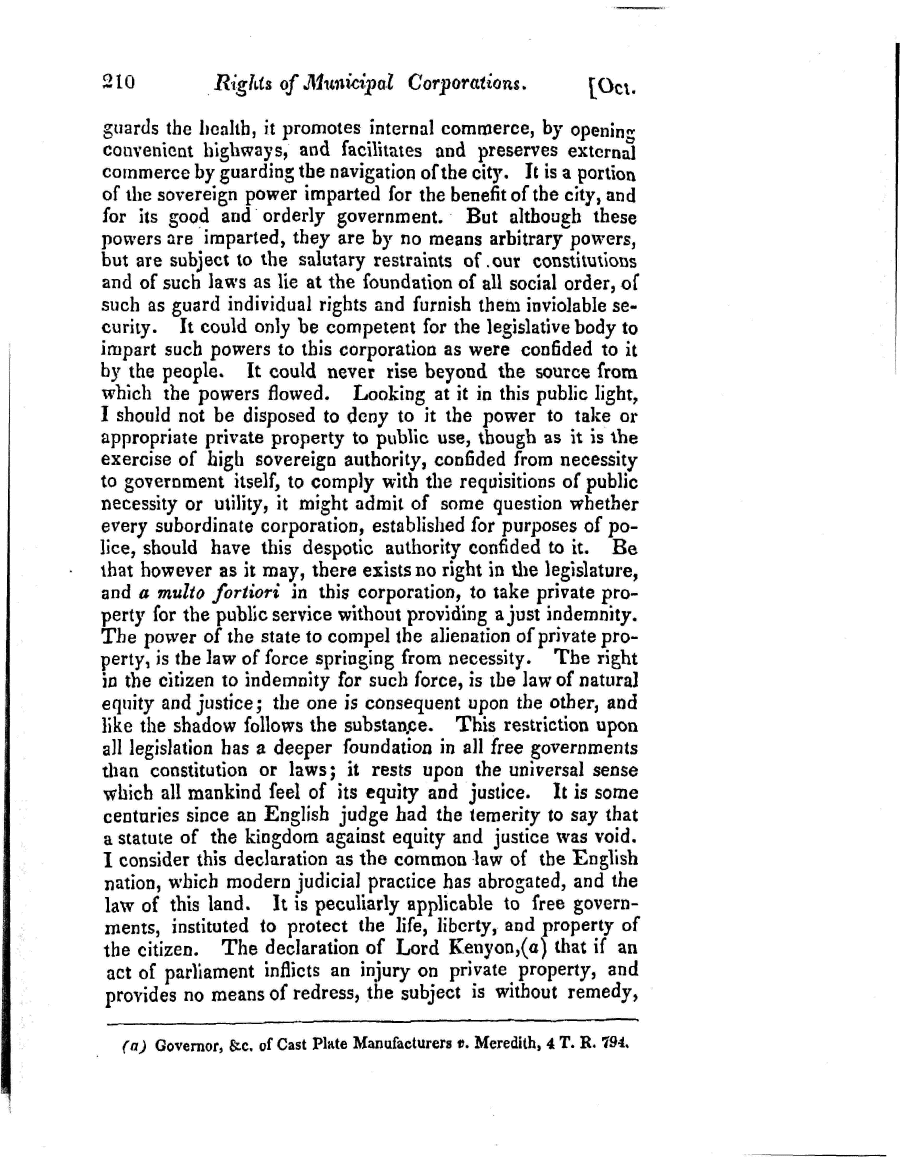|
210 Rights of Municipal Corporations. [Oct.
guards the health, it promotes internal commerce, by openin"
couvenieat highways, and facilitates and preserves external
commerce by guarding the navigation of the city. It is a portion
of the sovereign power imparted for the benefit of the city, and
for its good arid orderly government. But although these
powers are imparted, they are by no means arbitrary powers,
but are subject to the salutary restraints of .our constitutions
and of such laws as He at the foundation of all social order, of
such as guard individual rights and furnish them inviolable se-
curity. It could only be competent for the legislative body to
impart such powers to this corporation as were confided to it
by the people. It could never rise beyond the source from
which the powers flowed. Looking at it in this public light,
I should not be disposed to deny to it the power to take or
appropriate private property to public use, though as it is the
exercise of high sovereign authority, confided from necessity
to government itself, to comply with the requisitions of public
necessity or utility, it might admit of some question whether
every subordinate corporation, established for purposes of po-
lice, should have this despotic authority confided to it. Be
that however as it may, there exists no right in the legislature,
and a multo fortiori in this corporation, to take private pro-
perty for the public service without providing a just indemnity.
The power of the state to compel the alienation of private pro-
perty, is the law of force springing from necessity. The right
in the citizen to indemnity for such force, is the law of natural
equity and justice; the one is consequent upon the other, and
like the shadow follows the substanpe. This restriction upon
all legislation has a deeper foundation in all free governments
than constitution or laws; it rests upon the universal sense
which all mankind feel of its equity and justice. It is some
centuries since an English judge had the temerity to say that
a statute of the kingdom against equity and justice was void.
I consider this declaration as the common law of the English
nation, which modern judicial practice has abrogated, and the
law of this land. It is peculiarly applicable to free govern-
ments, instituted to protect the life, liberty, and property of
the citizen. The declaration of Lord Kenyon,(a) that if an
act of parliament inflicts an injury on private property, and
provides no means of redress, the subject is without remedy,
(a) Governor, &c. of Cast Plate Manufacturers t. Meredith, 4 T. R. 794,
|

